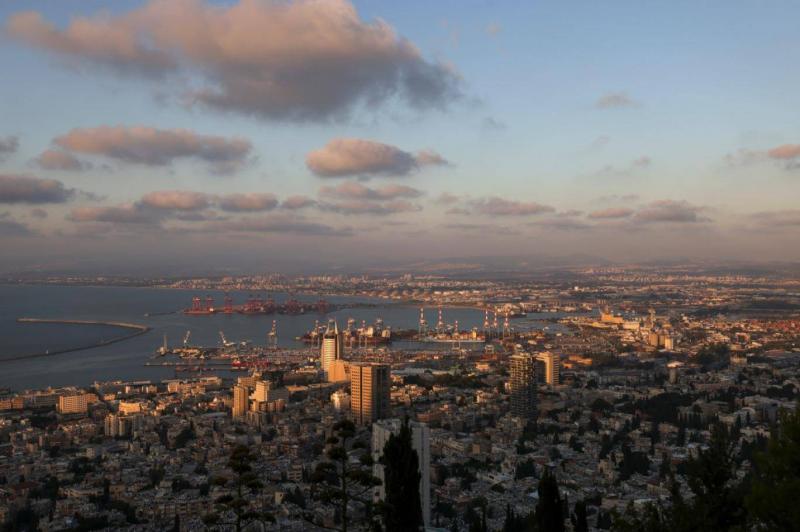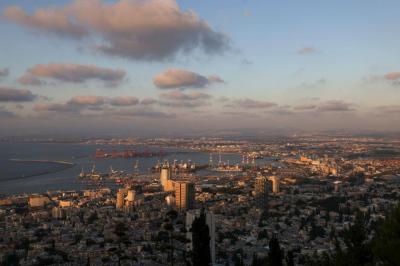Since the outbreak of the war in Gaza on October 7th, Hezbollah has been exchanging fire with Israel almost daily in support of the Palestinians in Gaza. The repercussions of this bombardment affect both sides of the border; for example, in Haifa, the main fuel tanks are within range of Hezbollah's fire. Like all residents of this coastal Israeli city, located just 30 kilometers from the Lebanese border, the population has not been informed about the risks associated with the industrial area, leading them to fear the worst.
Kiryat Haim Street, where he resides, falls under the municipality of Haifa, which is home to both Arab and Jewish Israelis, but it is separated from the city by a large industrial area and its oil refinery, as well as a massive oil storage facility. Hila Laufer, a former environmental advisor to the Haifa municipality, states, "Residents do not really know how many tanks are full or empty." She expresses her regret for the lack of information, as she also lives not far from these tanks.
Authorities assert that the site has been secured by emptying several tanks, without providing further details. Activists who campaigned to relocate the industrial area away from residential neighborhoods have failed to achieve this. Laufer notes, "For years, we have warned about the situation. What will happen when the day comes that we are attacked from the north, from Iran, from everywhere?" The Israeli army affirms that it has ordered "as a precautionary measure to monitor, inspect, and restrict the transport of materials in several factories in the north," but there has been no "complete halt to activity." It adds that the Home Front Command, responsible for civilian protection, "remains in constant contact" with all facilities, particularly through conducting "daily reviews" to maintain "a complete picture of hazardous materials stocks."
The public company "Tashan," responsible for the fuel storage site, did not respond to inquiries regarding this matter. However, the private company "Basan," which manages the refinery closest to the city center, confirmed that it is implementing army directives without providing further details. Meanwhile, the independent site "Mekomit" condemned the culture of "suppression and concealment" prevalent in the industrial area. It likened the potential consequences to the explosion that occurred at the Beirut port in 2020, which left at least 220 dead and 6,500 injured and led to the destruction of entire parts of the Lebanese capital.
Raja Zaatari, an advisor to the Haifa municipality, still remembers the battles fought by the city against private and public companies, particularly to relocate the ammonia stockpile to the Negev Desert in the south. He indicated that "The Haifa municipality demanded and forced these companies to reduce their quantities, especially in areas close to residential neighborhoods." Even he, who previously worked in this field, admits he did not know "exactly what materials were there." He states, "We know they are hazardous materials and that they are polluting, and that in the event of war, they could become a massive bomb."
In this context, Laufer warns that the risk of an environmental catastrophe will be an added danger afterward. Whether war occurs or not, Dufi Soni will remain in Haifa, where he regrets only one thing: the cancellation of cultural activities. He laments, "There is no music" in these tough times.




